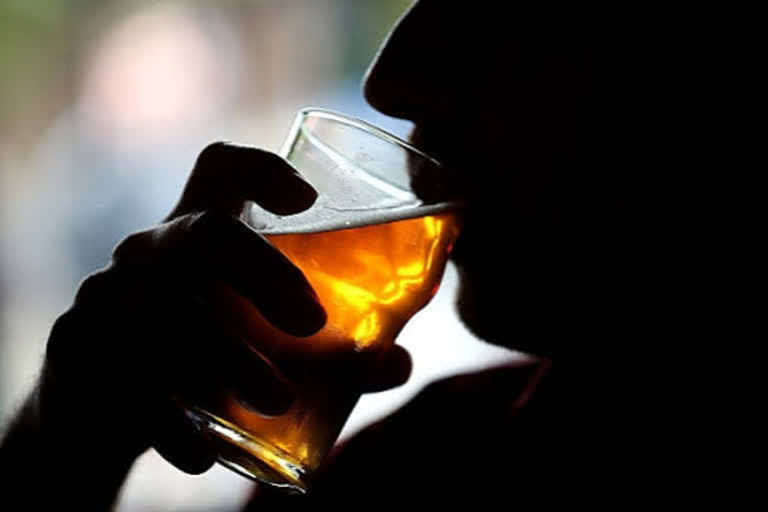Hyderabad:As the whole world finds itself in a state of uncertainty with the coronavirus outbreak, anxiety and despair are becoming very common these days. While people seek different solutions to seek solace for all their anxieties and stress, there are a huge number of people who resort to alcohol.
Statistics show that these days, many people are increasingly becoming dependent on alcohol to ease the pressure that the pandemic has been putting them through. Researchers, however, say that drinking alcohol even in moderate levels, might increase the risk of coronavirus and arterial diseases.
Harmful effect on one's immunity
Italian researchers have reported that alcohol contributes to worsening the disease's impact. "Alcohol increases the risk of viral infections and bacteria in the respiratory system. Alcohol addicts have been found to have serious lung problems. Situations are arising such that they are being forced to breathe through ventilators,” said Italian researcher Gianni Testino.
The Gianni team recently found that ACE-2 protein levels may increase at a high rate in alcoholics. Details of this research have not yet been published. However, ACE- 2 is known to contribute towards an easy entry of the virus into human cells.
Effect of alcohol on the brain
Other than respiratory ailments, alcohol also affects certain neuron transmissions in the brain. In the brain, Gamma Aminobutyric Acid (GABA) inhibits or reduces neural transmission. GABA production is increased by alcohol. Thereby, it slows down the activity of neurons. Alcohol affects glutamate production, which increases neuronal activity. This means that when someone is drunk, their body and brain slow down depending on the dose. Illusion and non-coordination occur in the person.
Read:Alcohol may put people at increased risk of coronavirus: WHO
This means that drinking alcohol can increase rather than reduce stress. If this habit persists, it can affect the promoter center of the brain. Alcohol further stimulates dopamine release. This leads to the person wanting more alcohol.
“People often drink alcohol to ease their stress. But after a while instead of decreasing the stress levels, it increases the level of stress in the person drinking alcohol,” said Prof. Michael Farrel, Professor of Addiction Psychiatry, New South Wales University, Sydney. “If stress leads to drinking, drinking leads to further pressure,” he added.
Increased sales abroad during the lockdown
During the lockdown, alcohol sales increased in many countries, including the US and Britain. Sales were up by 55 per cent this March compared to the same month last year in the US, and 22 per cent in Britain. South Africa, India, Sri Lanka and Greenland reported that though liquor stores were banned following a lockdown, consumption had not decreased. Alcohol enthusiasts who were initially outnumbered by a ban on our country due to a lockdown - have been drinking to the fullest, now that relaxations have been provided on liquor sales.
